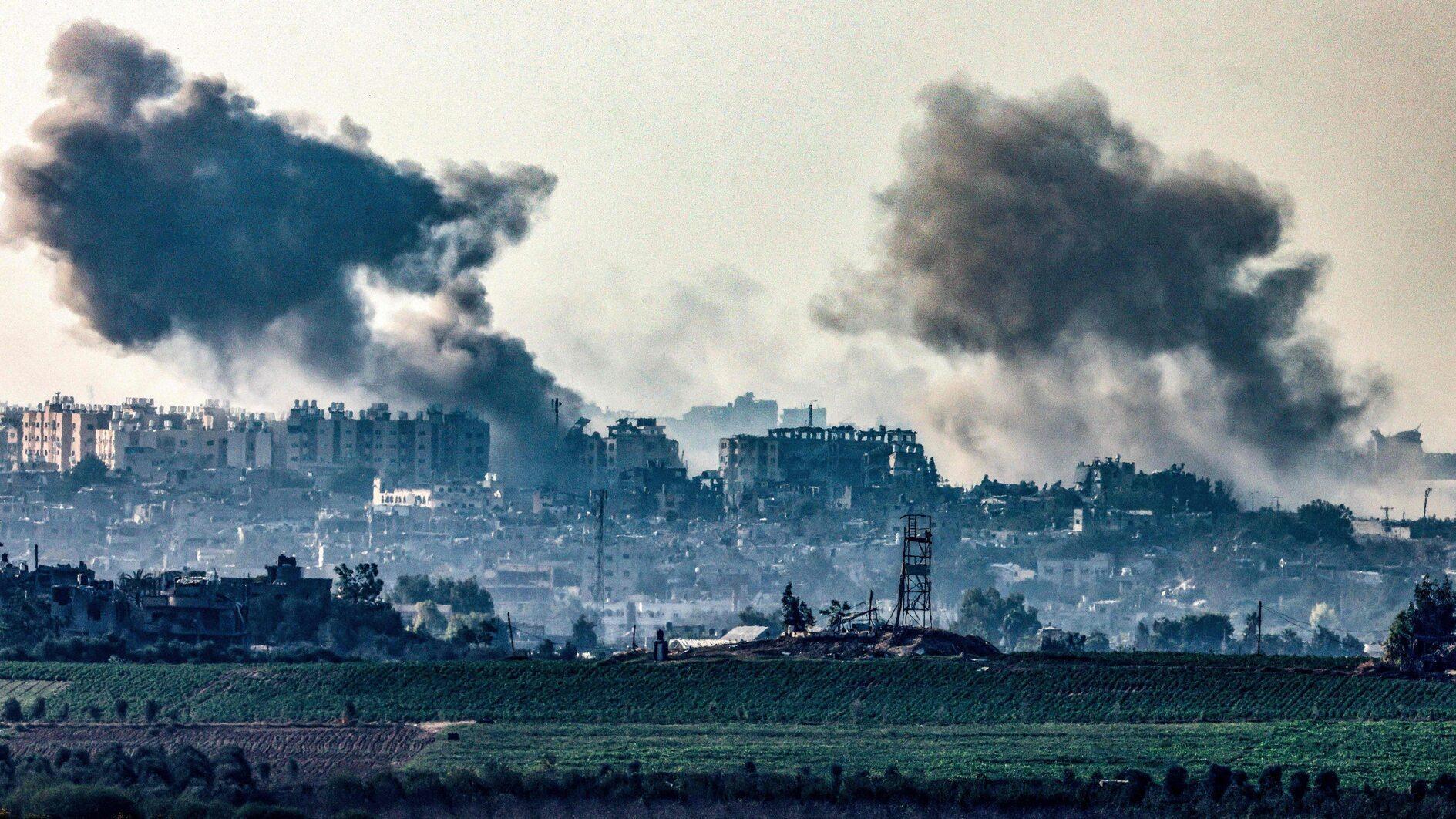
Israel’s killing of Yahya Sinwar, Hamas‘ leader and the mastermind of the group’s attack last year, is a dramatic turning point in the yearlong conflict in Gaza, with questions lingering on the future of the war.
The Israeli military announced the death of Sinwar on Oct. 17, after a group of soldiers killed him in a surprise firefight in southern Gaza's Rafah.
According to the Israeli military, Sinwar met his end at the hands of a routine patrol on Oct. 16. It said a group of soldiers of the 828th Brigade was moving through the city of Rafah when it came across three Palestinian militants.
There was no prior intelligence pointing to Sinwar's presence in the area.
The forces identified the three militants who were going from home to home on the run.
As the soldiers chased them, Sinwar split from the other two.
A tank fired at a building in which two of the militants hid, while Sinwar took cover in another house.
Drone footage released by the military showed Sinwar covered in dust sitting in an armchair staring down a drone as the device entered the house devastated by strikes.
The grainy footage showed Sinwar alone with one hand severely injured and his head covered in a traditional scarf, throwing a stick at the approaching drone during his final moments.
"We identified him as a terrorist inside a building and we shot into the building and we entered to scan the area. We found him with a gun and 40 thousand shekels ($10,750)," said Israeli military spokesman Danieal Hagari.
Unverified images circulating online showed Israeli soldiers circled around the mangled corpse of a man resembling Sinwar who appeared to have suffered a severe head wound.
The military conducted immediate DNA testing along with dental examinations and other forensic enquiries that helped confirm Sinwar's identity.
Later on Oct. 17, Sinwar's body was brought to a laboratory in Israel's commercial hub of Tel Aviv.
The initial findings described Sinwar's physical condition as "good even though he had spent a long time in tunnels," media reported.
Sinwar had not been seen in public since the war erupted with the Oct. 7, 2023 attack on Israel.
The Israeli military and media regularly claimed he was hiding deep in the warren of tunnels under Gaza.
There were also reports that Sinwar had surrounded himself with several hostages.
In a statement on Oct. 18, a senior Hamas official said the Palestinian militant group cannot be eliminated with the killing of its leaders, but stopped short of confirming the death of its chief.
Israeli Prime Minister Benjamin Netanyahu celebrated the killing of Sinwar, saying that the death does not mean the end of the war in Gaza.
"The war... is not over yet. And it is difficult, and it exacts heavy prices from us," Netanyahu said in a video statement, adding in a message to militants in Gaza: "Whoever lays down his weapon and returns our hostages, we will allow him to go on living."
"Hamas will no longer rule Gaza. This is the beginning of the day after Hamas, and this is an opportunity for you, the residents of Gaza, to finally break free from its tyranny."
Several Western leaders, including U.S. President Joe Biden, welcomed the death of the Hamas leader and called for an end to the war.
In a phone conservation, Biden told Netanyahu that “now is the time to move on... towards to a ceasefire in Gaza” and that he was now “hopeful” that a truce was possible.
Western countries interpreted Sinwar's killing as an important turning point in the war, increasing pressure on Israel to end the war and reach a ceasefire.
With the architect of the Oct. 7 attacks eliminated, Netanyahu could now tell Israelis that one of the war’s aims has been reached. Politically, that might allow him to be more flexible on a ceasefire deal that ends the war in exchange for hostages — a condition he has so far refused to accept, at least in part, critics say, because it could threaten his rule.
Furthermore, the Israeli military has indicated that there are still many Hamas fighters on their target list.
Netanyahu rules with the support of two far-right parties that have threatened to topple the government if the war ends under a cease-fire deal. They repeated their opposition to a deal after Sinwar’s killing. They are also supporters of establishing Israeli settlements in the Gaza Strip, something the Israeli leader has publicly ruled out.
Netanyahu, who is on trial for alleged corruption, has also seen his political fortunes rise throughout the war, after they plummeted in response to Hamas’ attack last year. Prolonging the war allows him to enjoy boosts of support after whatever successes he notches.
Sinwar’s death will renew hopes for a ceasefire, but there seems to be little appetite in Israel’s government for the war to end. Benny Gantz, an opposition politician, said Israel’s military “will continue to operate in the Gaza Strip for years to come.”
For Hamas, Sinwar’s killing leaves a gaping hole in the militant group’s leadership, with its future in Gaza and beyond uncertain. It is a symbolic blow for a group already reeling from multiple assassinations of its leaders.
Sinwar was born in a refugee camp in Khan Younis in 1962. His family had been forced to flee and became refugees in 1948 during what Palestinians call the Nakba (catastrophe).. He was arrested not long afterwards and given four life sentences for attempted murder and sabotage. Sinwar spent 22 years in Israeli jails. After he was released in a prisoner swap in 2011, he returned to Hamas.